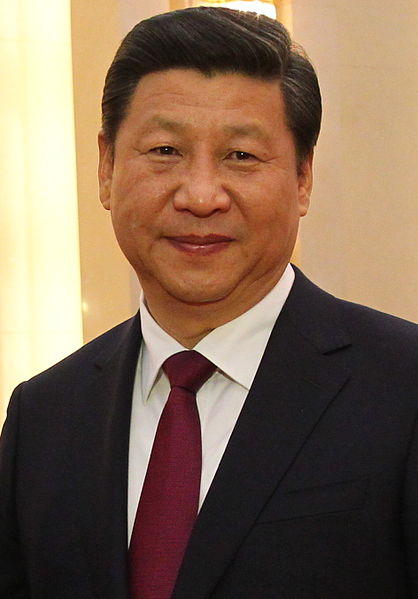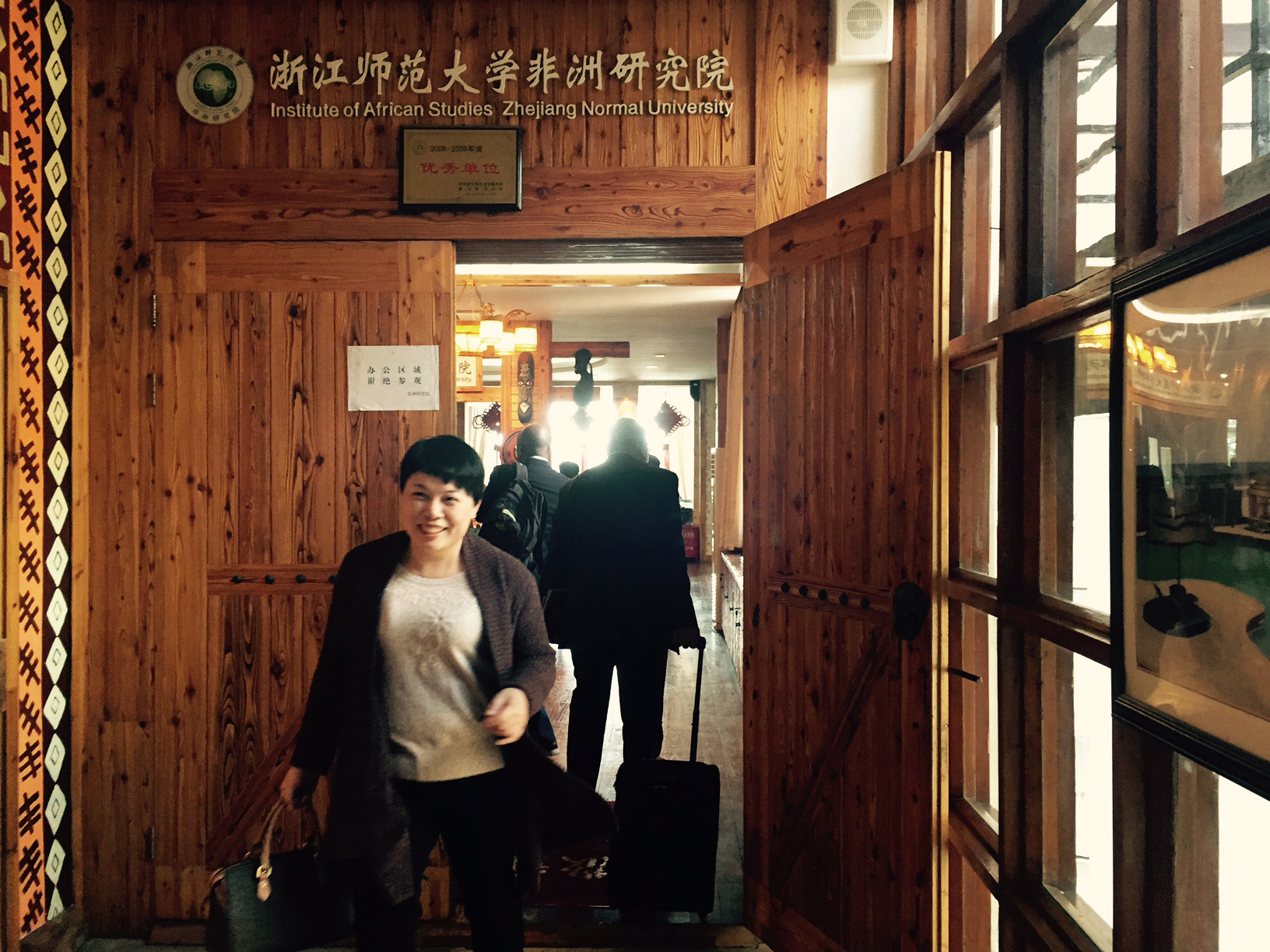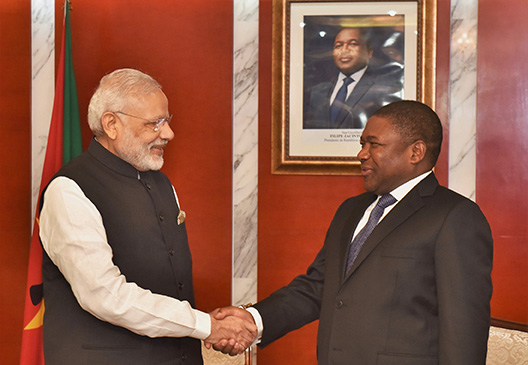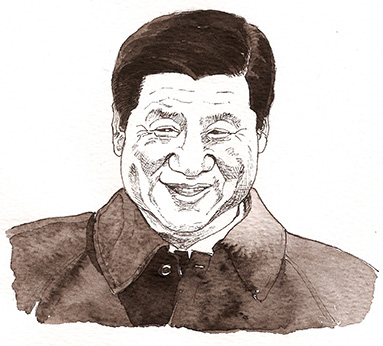
Chinese president, Xi Jinping. Illustration Vusi Malindi.
Africa is a just a political pawn in China and Japan’s superpower rivalry; the continent needs to up its game strategically to benefit from the Asian nations’ need for its political backing, and resources
The growing geopolitical competition between China and Japan for influence in Africa may not involve guns and battalions or warships and warplanes, but it bears some resemblance to the 19th-century European scramble for influence and territory on the continent. Both are Asian global powers and their recent forays into Africa have been framed in competitive terms. On the global stage, China is the second largest economy by nominal GDP, while Japan is the third.
Some might dismiss descriptions of the relationship as competitive, as specious. But several factors support the view that China and Japan’s interests in Africa are an extension of their geopolitical rivalry.
The two countries’ relations in their East Asia backyard have a long history. Historically China was the undisputed hegemon, with Japan and other nations in the region deferring to it. From the mid-19th century Japan’s rapid industrialisation tipped the scales in its favour, while China’s economic fortunes declined. Such was the fall of the Chinese empire that Japan was able to invade it in 1937 and to continue its occupation of parts of the country throughout the Second World War. This remains a sore point today, often triggering nationalistic fervour.
In recent years China and Japan have approached African countries through summit diplomacy. China uses the triennial Forum on China-Africa Cooperation (FOCAC), established in 2000, while Japan uses the Tokyo International Conference on Africa’s Development (TICAD), established in 1993.
Japan had a seven-year head start in deploying summitry in Africa but apparently ran out of steam. It now wants to up its game. By convening the TICAD-VI in Nairobi, Kenya, last August, Japan was, in essence, reinvigorating its policy towards Africa. China’s response was fury, saying Japan was “attempting to impose its will on African countries to gain selfish interests and drive a wedge between China and African countries”.
China saw Japan as challenging its success with summit diplomacy by hosting TICAD on African soil; all five previous conclaves had been held in Japan. Conversely, China’s FOCAC has not only been characterised as a joint Africa-China mechanism, but is also symbolically convened alternately in China and an African country.
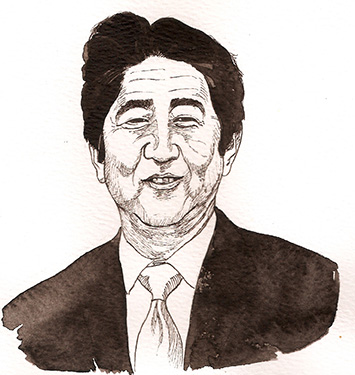
Japan’s Prime Minister, Shinzō Abe. Illustration Vusi Malindi.
The FOCAC conferences and summits have been big signature events attended by African leaders, with huge amounts of monies pledged in aid and loans. Comparatively, the TICAD events have been relatively low-key – until the latest one. China’s FOCAC has been held every three years, while, until the August 2016 event, TICAD was held every five years; it will now also be held every three years. Coincidentally, last August’s TICAD came only eight months after the FOCAC summit in Johannesburg, South Africa. This reinforces the perception that the countries are competing for Africa’s resources.
Economic objectives provide the lenses through which to assess this competition. Overall China has certainly outflanked Japan in its economic engagements with Africa, at least so far. In 2000 the value of trade between Africa and China was $10 billion, increasing to an estimated $300 billion in 2015 and projected to reach $400 billion in 2020. The total volume of Africa-Japan trade is hard to assess, but some sources indicate that it stood at $24 billion in 2015, far below the Chinese figures.
At the 2012 FOCAC in Beijing, $20 billion, encompassing development assistance, loans (especially for infrastructure development), and foreign direct investment in diverse sectors was pledged. At the Johannesburg FOCAC summit in 2015, the figure was tripled to $60 billion, targeting African industrialisation particularly. Japan pledged $10 billion during the 2013 Yokohama TICAD, and $30 billion during the Nairobi conference, towards investments in infrastructure, energy and manufacturing. These figures indicate that Japan is not far behind China with regards to investment and development assistance levels to Africa, and is perhaps angling to outpace it in the future.
How do these powers structure their economic engagements with Africa? Both countries use development assistance and loans as tools for economic engagement with the continent. Japan, though, is a member of the Organisation for Economic Cooperation (OECD) and has to adhere to regulations for delivering development assistance to Africa.
A key tenet of these regulations is that development assistance should not be tied to foreign direct investment.
Not being an OECD member, China is not hindered by such regulations, and Chinese companies – mostly state-owned enterprises – are often the principle beneficiaries of Chinese development assistance and loans. These entities operate, especially, in the infrastructure development and natural resources sectors. There are indications that Japan is rethinking this approach to bolster its private sector’s involvement in Africa, to compete with its Chinese counterparts.
But the China-Japan rivalry in Africa is not only economic; it is also political. Examples abound. Take the feud between China and Japan over the Diaoyu and Senkaku islands in the East China Sea; the countries’ foreign affairs departments lobby Africans to back their respective ownership claims. They send masses of documents to African governments, media and academics, substantiating the authenticity of their claims. Apart from the East Asian political raison d’être, then, international politics can be read into the China-Japan relationship.
Japan has long sought a permanent seat on the United Nations Security Council (UNSC), which China opposes. Japan, it is thought, might be forging ties with Africa to facilitate its entry into the UNSC, along with an African representative nation. Japan is also a strong ally of some Western powers, especially the US, and its entry into Africa might be seen as an opportunity to gang up on China.
How should Africa respond to the competition? Professor Gilbert Khadiagala, head of International Relations at South Africa’s University of the Witwatersrand, believes that Africa should not be sucked into the feud. “Africa should not engage in competitive games that pit China against Japan or vice versa; instead, it should engage both countries for mutual benefit,” he says.
Pointing to the similarity of the China-Japan competition over Africa to the competition between Western and Eastern states for influence over the continent during the Cold War, he argues for cooperation between China and Japan in Africa. “The last thing Africa needs now is competitive processes a la the Cold War, which often tend to compromise development priorities. Africa, in fact, should, where necessary, be asking Japan and China to collaborate on joint projects, such as infrastructure.”
Dr Yoon Jung Park, coordinator of the Chinese in Africa/Africans in China Research Network and adjunct professor in the African Studies Program at Georgetown University in the US, suggests African countries use the competition to their favour. She advocates greater African “agency”, arguing that Africans should determine what is good for them in the competition and develop plans accordingly. “Any competition amongst African suitors can potentially be very beneficial because it gives African nations greater options”, says Park. However, the continent will benefit from this approach “… only if the African Union, regional economic communities and individual countries are able to negotiate better deals for themselves”.
She believes that “the Japanese, as part of the established economic players and more experienced international development donors, can potentially influence how China engages in Africa”. “For example, Japan has very strict environmental and labour criteria for its projects; this could push China to be more cognizant of these and other issues if they are competing in Africa with Japan and Western countries.”
If China adopts Japan’s approach, it could go a long way towards improving that nation’s image on the continent. This would open up opportunities for political and economic ties between the two Asian nations and Africa’s countries, which could be beneficial for all.
Dr Bob Wekesa is acting director and research and communications coordinator at the African Centre for the Study of the United States based at the University of the Witwatersrand, South Africa. He holds a Bachelor’s degree from the University of Nairobi and Master’s and doctoral degrees from the Communication University of China, Beijing. His area of teaching, research and public engagement is the intersection of journalism, media, and communications on the one hand and geopolitics, diplomacy and foreign policy on the other. He supervises post-graduate projects in these fields. His current research work includes international communication; diplomacy with a focus digital and public diplomacy; African diaspora; the internationalisation of African cities; the geopolitics of Africa and established and emerging powers. Prof Wekesa is well published in academic and popular platforms.

